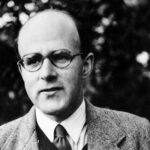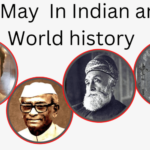The Fourth of July, also known as Independence Day, is a significant holiday in the United States, celebrated annually on July 4th. It commemorates the adoption of the Declaration of Independence on July 4, 1776, which declared the United States independence from Great Britain. The Fourth of July is marked by various festivities, including parades, fireworks displays, barbecues, and family gatherings. This date holds great historical and cultural importance for Americans and is considered a symbol of patriotism and freedom.
History of the Fourth of July
The Fourth of July, also known as Independence Day, has a rich history rooted in the birth of the United States as an independent nation. The journey to independence began with escalating tensions between the American colonies and Great Britain in the mid-18th century. On July 2, 1776, the Second Continental Congress voted in favor of declaring independence from British rule. Two days later, on July 4, 1776, Congress adopted the Declaration of Independence, a document drafted primarily by Thomas Jefferson, which proclaimed the colonies’ separation from Britain and articulated the fundamental rights of individuals. The first public readings of the Declaration took place on July 8, 1776, and celebrations erupted across the colonies, featuring bonfires, cannon firings, and demonstrations of patriotism.
Over the years, the Fourth of July celebrations grew in significance and popularity. The first anniversary of Independence Day in 1777 was marked by parades, concerts, and public readings of the Declaration of Independence in Philadelphia and other cities. These celebrations often included fireworks, which quickly became synonymous with the holiday. Throughout the 19th century, Independence Day festivities expanded across the country, becoming a unifying tradition that showcased the nation’s collective pride and patriotism.
In 1870, the Fourth of July was officially recognized as a federal holiday, solidifying its status as a day of national observance and celebration. Today, the Fourth of July is commemorated with a range of events and activities. Parades featuring marching bands and community groups wind through city streets, while fireworks display light up the night sky in dazzling spectacles. Families and friends come together for picnics and barbecues, enjoying outdoor activities and the summer weather. Concerts, music festivals, and sporting events provide entertainment for attendees, and community festivals offer carnival rides, games, and live performances.
The Fourth of July continues to be a significant day in American history, reminding citizens of the struggles and sacrifices made by the founding generation to secure the nation’s freedom. It serves as a time of reflection on the principles of liberty and democracy upon which the United States was built. The holiday’s events and traditions foster a sense of national pride, unity, and community, allowing Americans to celebrate their heritage, express gratitude for their freedoms, and come together to enjoy the spirit of independence.
Significance of Fourth of July
- Celebration of Freedom: Independence Day celebrates the birth of the United States as a nation and the freedom Americans enjoy. It is a day to reflect on the principles of liberty and democracy upon which the nation was founded.
- National Identity: The Fourth of July plays a crucial role in shaping and reinforcing American national identity. It fosters a sense of patriotism, unity, and shared history among citizens.
- Cultural Traditions: The holiday is marked by various cultural traditions, such as barbecues, picnics, and outdoor activities. It brings families and communities together to celebrate and enjoy each other’s company.
- Reflection and Gratitude: Independence Day provides an opportunity for individuals to reflect on the sacrifices made by past generations and express gratitude for the freedoms and opportunities they enjoy.
Events on the Fourth of July
The Fourth of July, or Independence Day, is marked by various events and activities that celebrate the birth of the United States as an independent nation. Here are some common events that take place on the Fourth of July:
- Parades: Many cities and towns organize parades featuring marching bands, floats, and community organizations. These parades often showcase patriotic themes and are attended by local residents and visitors.
- Fireworks Displays: Fireworks are a quintessential part of Fourth of July celebrations. Spectacular fireworks displays light up the night sky across the country. Major cities often host large-scale fireworks shows that draw thousands of spectators.
- Picnics and Barbecues: Families and friends often gather for picnics and barbecues in parks, backyards, or outdoor venues. Grilling food, enjoying picnic fare, and sharing meals together are common traditions on the Fourth of July.
- Outdoor Activities: The holiday offers opportunities for outdoor recreational activities. People engage in activities like swimming, hiking, biking, and playing sports to make the most of the summer weather and the holiday spirit.
- Concerts and Music Festivals: Many cities organize live music performances, concerts, or music festivals on Independence Day. These events feature various genres of music and provide entertainment for attendees.
- Sporting Events: Some professional sports leagues, such as Major League Baseball, organize special games on the Fourth of July. Baseball is often associated with the holiday, and attending a game or watching it on TV is a common way to celebrate.
- Community Festivals: Numerous communities host Fourth of July festivals with carnival rides, games, food vendors, and live entertainment. These festivals often bring together local residents for a day of fun and celebration.
- Historical Reenactments: Some areas with historical significance related to the American Revolution stage reenactments of key events, such as the reading of the Declaration of Independence or battle reenactments, to educate and entertain visitors.
- Family Gatherings: The Fourth of July is a time for families to come together and enjoy each other’s company. It is common for relatives to gather for cookouts, reunions, or trips during the holiday.
These events and activities foster a sense of patriotism, unity, and community spirit. They allow people to celebrate the nation’s independence, honor its history, and enjoy the camaraderie that comes with being together on this special day.












